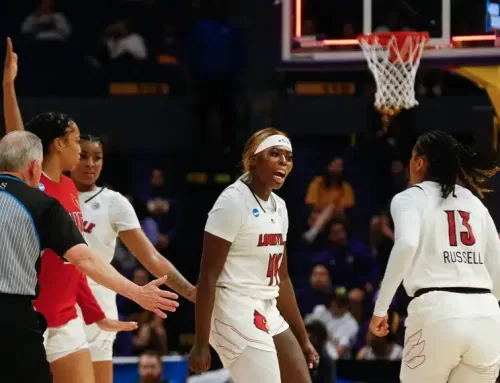By James ElMallakh–
The University of Louisville’s bioengineering school has received a Coulter Translational Partnership Award from the Wallace H. Coulter Foundation, an organization that seeks to “improve health care and make…improvements available and affordable to everyone” through grants to universities across the nation.
The award comes in the form of $3.33 million and is granted to schools that have shown promising results in their bioengineering programs. The foundation and its partners help develop technologies specifically designed to help people recover from all kinds of illnesses.
U of L will use the grant to “try to partner engineering faculty with clinicians to try and address unmet clinical needs in order to help patients and improve the quality of life of patients,” said Dr. Robert Keynton, a faculty member of the U of L department of bioengineering.
The $3.33 million grant given to the bioengineering school will be used over a period of five years. An additional $1.67 million has also been given to the department by the university itself, giving the school a total operating budget of $5 million to be allocated at a rate $1 million per year for the next five years.
Keynton said the award money would be divided into multiple individual research grants, to propel ideas “from the laboratory into the marketplace.”
The goal is to produce innovative medical treatments through the fusion of engineering and medical know-how.
For example, as a cancer treatment, U of L is implementing a process where gold nanoparticles, which connect to proteins in cancerous tumors, and “when you hit them with a near infrared light, it will cause the gold particles to oscillate which will cause them to heat up and kill the cancer tumor,” Keynton said.
Devonnah Woodruff, a senior bioengineering major, credits the faculty and students’ hard work as the reason for the grant recognition.
The program is “six years old, so winning and being granted the Coulter Foundation award, that puts us on par with programs like UCLA… that’s huge,” Woodruff said. “And we’ve only been around for less than a decade, so that is intense and that really points to a lot of hard work.”
Despite the young age of the school of bioengineering at U of L, bioengineering graduate Matt Nitzken expects the school to produce great work.
Although the program hasn’t had the money to go to as many medical and engineering conferences and share their ideas as they would like, Nitzken said the grant money would help because “we would now have money freed up that we could really get out there, innovate and collaborate with people… which is what we need to do to keep pushing forward.”
The grant is a step in the long process of materializing theoretical laboratory ideas into concrete tools for healing. It also reflects how far the school of bioengineering has come in such a short time.
“I do believe that the grant is going to give the opportunity to get a lot of ideas… literally from the bench top to the bedside,” Woodruff said. That “is the most important thing. You can’t help patients unless you’re actually making products to help the patients.”
[email protected]
Photo courtesy of Wallace H. Coulter Foundation




